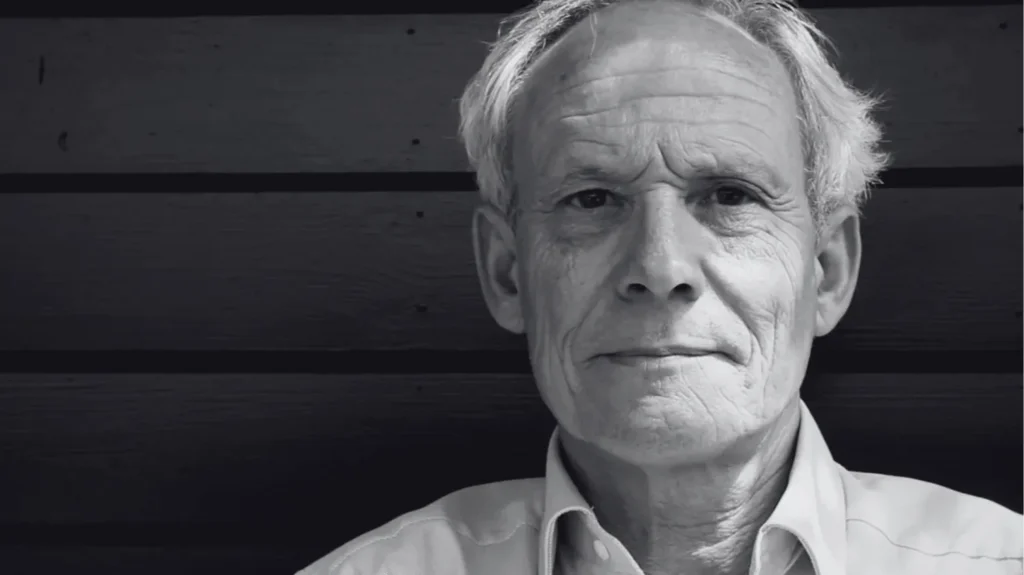
"I'm constantly surprised by the power of values."
Vincent Stanley
Patagonia Employee and Leader
- Date
How to Discover Core Values for Your Company, Team, or Organization
posted in Business Coaching

Adam Kreek
Why Core Values Matter
Values are not slogans. They are not motivational posters in the lunchroom. They are the invisible operators of our actions.
Values as the invisible drivers of culture and results
Values define the culture of our organizations. They change slowly and, when honoured, become the steady rhythm that guides decisions, behaviours, and results.
Shared values build successful teams. They maximize good times and make hard work feel easy. They give us the strength to endure a crisis.
What happens when values are unclear or in conflict
But when values are unclear—or worse, in conflict—confusion, mistrust, and wasted energy creep in.
The good news? Values can be discovered, clarified, and lived. Organizations that take the time to do this consistently outperform those that don’t.
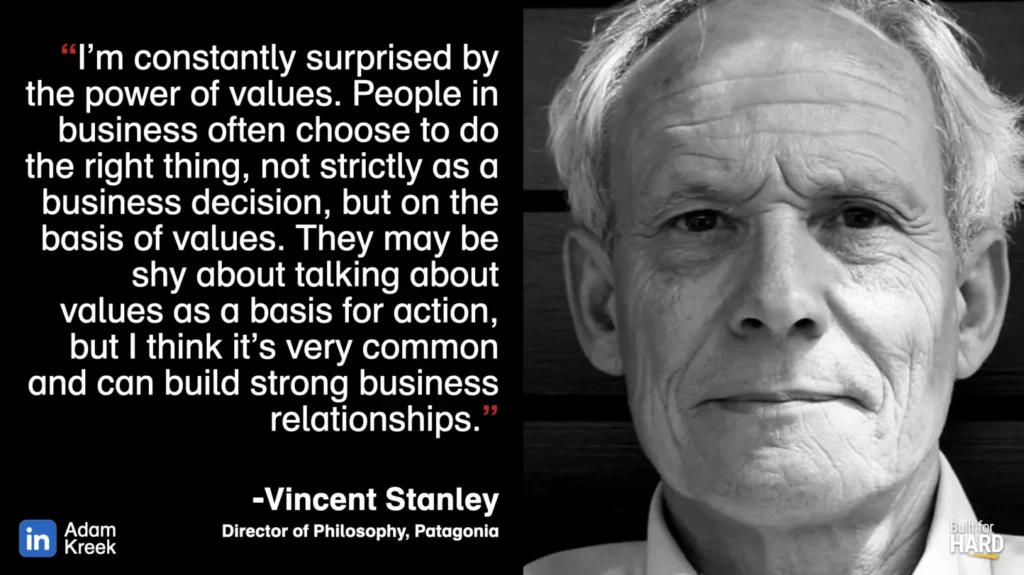
Lessons from Global Companies
Patagonia – Building loyalty through environmental stewardship
Patagonia has built its reputation on environmental stewardship. Its values show up in business decisions—from repairing old jackets instead of pushing new sales, to donating profits to environmental causes. Customers stay loyal because Patagonia’s values are visible in action.
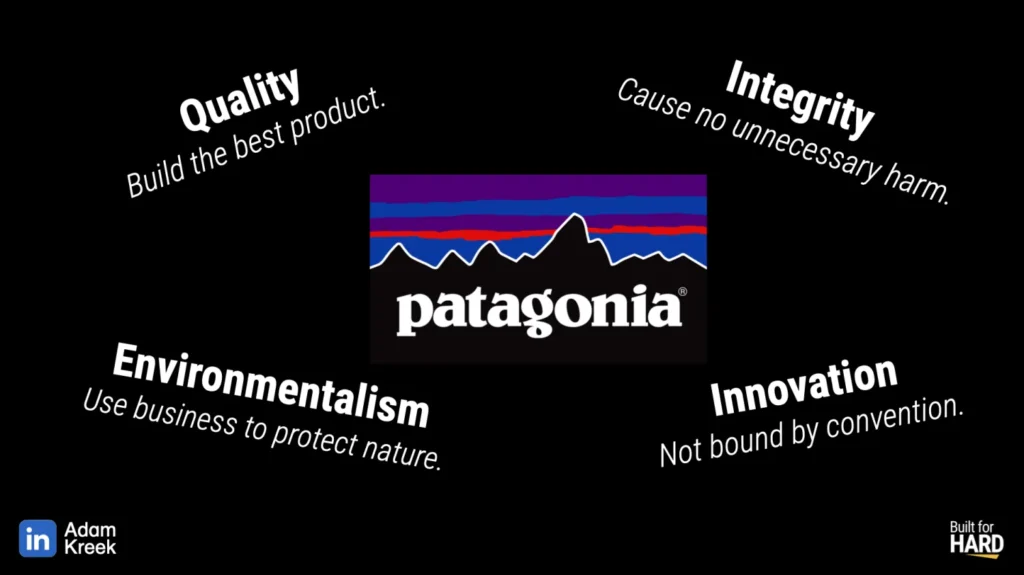
LEGO – Rediscovering creativity as a core company value
LEGO nearly went bankrupt in the early 2000s. Their turnaround came when they returned to their core value: creativity through play. By grounding their strategy in imagination, LEGO reconnected with its roots, restored profitability, and reignited its fan base.
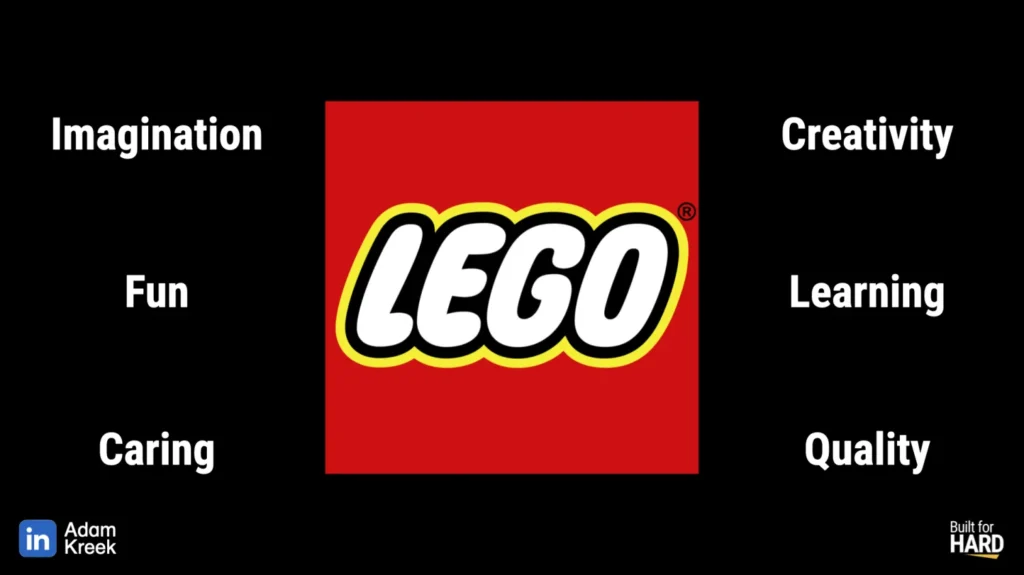
Pfizer – Acting with courage and excellence during crisis
Pfizer, during the COVID-19 pandemic, leaned on its values of courage and excellence. Speed was not luck. It was a culture trained to act boldly under pressure, while maintaining high standards of quality and safety.
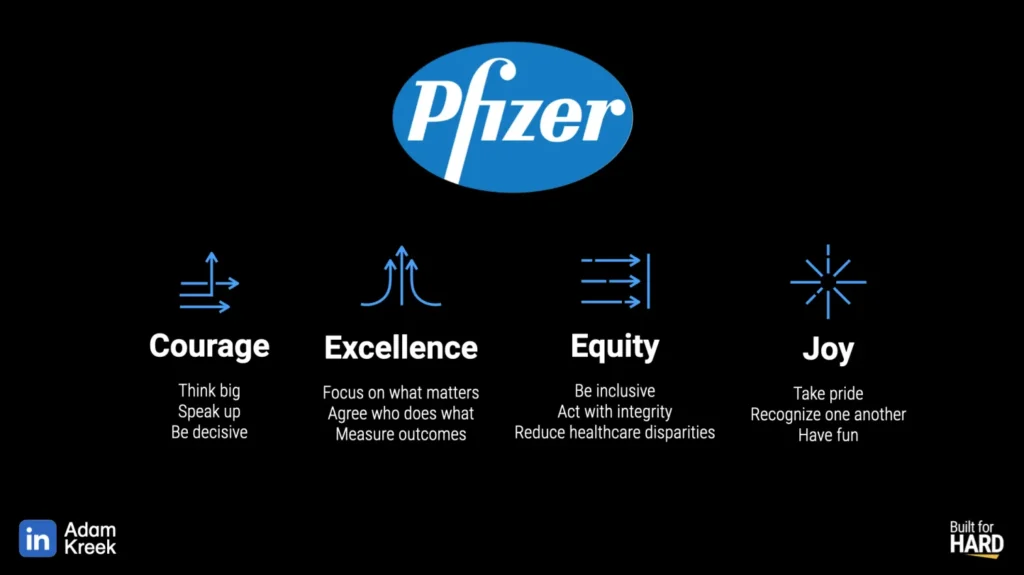
Values-driven achievement is not theory. It’s strategy in action.
Real-World Examples of Values Discovery
MTU Canada – Respect, Openness, Improvement (ROI) in action
At MTU Maintenance Canada, a team of engineering leaders wanted to elevate the culture of the organization. Defining values was a key part of the process.
Engineers, by nature, are practical. They don’t want vague ideals—they want clarity, structure, and actionable principles. So, we created a simple framework of values summarized as ROI: Respect, Openness, and Improvement.
But values on their own weren’t enough. The team needed action statements and principles that would resonate in daily decisions. Here’s what they developed:
Show Respect
- Honesty matters to me.
- I embrace open dialogue.
- I give and receive candid, direct feedback.
Drive Improvement
- I rise to the challenges of the marketplace.
- I commit to continuously improve our organization and products to provide maximum value to our customers.
Be Open
- Honesty matters to me.
- I embrace open dialogue.
- I give and receive candid, direct feedback.
These weren’t theoretical constructs. They became lived guidelines. Respect, openness, and improvement turned into a shared language for performance reviews, conflict resolution, and innovation.
ROI was not just a return on investment—it became a return on integrity.
Yosemite Pathology – Quality, Compassion, Integrity, Innovation
At Yosemite Pathology, we worked with the leadership team to clarify the values driving the administrative arm of this medical practice. Unsurprisingly, the patient was at the centre of everything.
The organization landed on four values:
- Quality – Guiding principle in all services and patient care.
- Compassion – How staff interact with patients, families, and each other.
- Integrity – Ethical conduct and sound principles.
- Innovation – A force for growth, adaptation, and improved patient outcomes.
Jennifer Pinasco, CEO, often highlights how these values drive behaviour. When COVID-19 hit, the lab launched testing in just ten days—a result of their culture of innovation, supported by compassion and integrity.
Their values became more than ideals. They became a roadmap for decisions, from adopting new technologies to supporting frontline staff through pandemic stress.
The lesson? When values are clear, even crises become opportunities for excellence.
Atomic Energy of Canada Limited (AECL) – Balancing safety, accountability, and innovation
At Atomic Energy of Canada Limited (AECL), the leadership team identified five core values:
- Accountability
- Integrity
- Respect
- Innovation
- Collaboration
These values were underpinned by two non-negotiable beliefs:
- Safety must be in all things.
- Human rights underpin all values.
In the values discovery process, we uncovered an important reality: values can conflict.
Engineers and operators valued control, predictability, and security. Innovators pushed for creativity and experimentation. These forces clashed in key decisions.
The breakthrough came when we acknowledged that accountability, integrity, and respect (the “controlling values”) had to be honoured first. Once a baseline of safety and security was established, innovation and collaboration could thrive.
This balance created an organizational culture that could both safeguard the public and push the boundaries of nuclear technology.
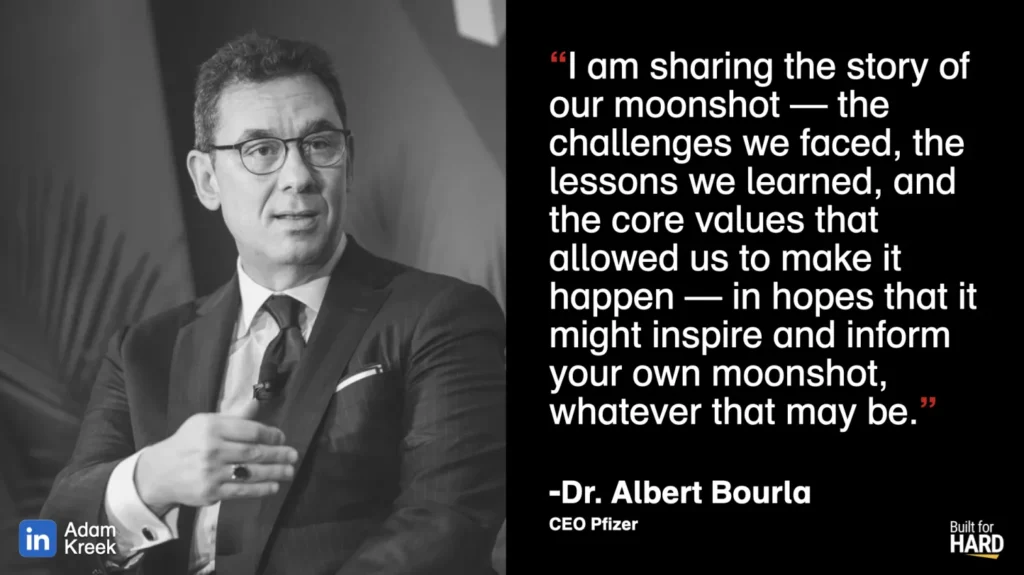
The Step-by-Step Process to Discover Core Values
So how do you discover and define values for your company, team, or organization?
Here’s the process I use in workshops, refined over years of coaching and consulting:
1. Begin with a Beginner’s Mind
Drop assumptions. Listen without judgment. Be curious. Ask people what truly matters, not what they think “should” matter.
2. Identify Value Words
Generate a list of value words that represent the ideal character of your company. Don’t censor. Words like integrity, courage, service, excellence, adventure, or learning might emerge.
3. Cluster Like Words Together
Group synonyms and related terms. “Integrity, honesty, truth” might cluster as Integrity. “Energy, vitality, flow” might cluster as Vitality.
4. Pick 3–5 Core Values
Less is more. Too many values dilute focus. Choose the essentials—the ones that will endure through crises and market shifts.
Explore the team core values discovery process in more detail.
5. Test the Ecology of Values
Do your values fit together? Do they balance each other? Do they create healthy tension, or destructive conflict? This step is critical—at AECL, it was where the breakthrough happened.
Read more here to pressure test the values of your team.
6. Put Values to Work
This is where most organizations fall short. Values must move beyond posters and websites. They need to live in hiring practices, performance reviews, strategy sessions, and daily decision-making.
Here are more examples of how past clients have put their values to work, building the cultures of thier organizations.
Why Values Discovery is a Leadership Imperative
Values discovery is not a “soft” exercise. It is one of the most powerful tools for building sustainable performance.
Clear values increase influence and efficiency
When values are clear:
- Leaders have more influence.
- Teams become more efficient.
- Organizations adapt faster in crisis.
- Individuals feel more fulfilled, connected, and resilient.
Alignment between values and strategy creates lasting results
In my work across industries—from aerospace to healthcare to engineering—the same truth holds: when values are aligned, strategy sticks.
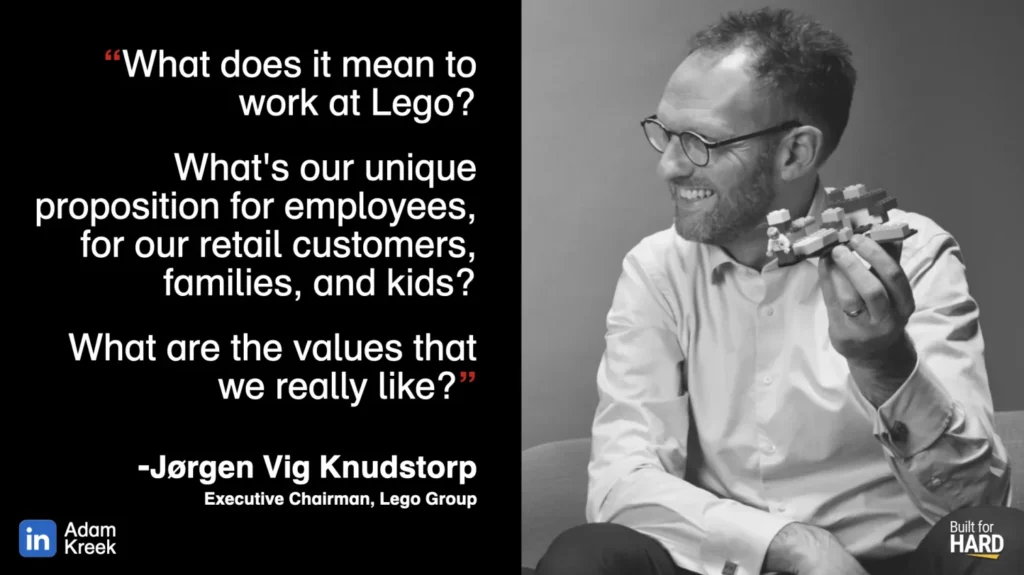
Closing
Values are not static, but they are steady. They shift slowly, like a river shaping rock. They are the DNA of your culture, the operating system of your organization, and the filter that remains when tactics, markets, and technologies change.
Values are steady anchors in changing markets
When discovered, clarified, and lived, values don’t just help organizations succeed.
They help them endure.
Clear values turn ordinary teams into extraordinary ones
Clear values turn ordinary teams into extraordinary ones—and make the hard work worth doing.
–––––
Adam Kreek is on a mission to positively impact organizational cultures and leaders who make things happen.
Kreek is an Executive Business Coach who lives in Victoria, BC, near Vancouver, British Columbia, Canada, and Seattle, Washington, USA, in the Pacific Northwest. He works with clients globally, often travelling to California in the San Francisco Bay Area, Atlanta, Georgia, Toronto, Ontario and Montreal, Quebec. He is an Olympic Gold Medalist, a storied adventurer and a father.
He authored the bestselling business book, The Responsibility Ethic: 12 Strategies Exceptional People Use to Do the Work and Make Success Happen.
Discover our thoughts on Values here.
Want to increase your leadership achievement? Learn more about Kreek’s coaching here.
Want to book a keynote that leaves a lasting impact? Learn more about Kreek’s live event service here.